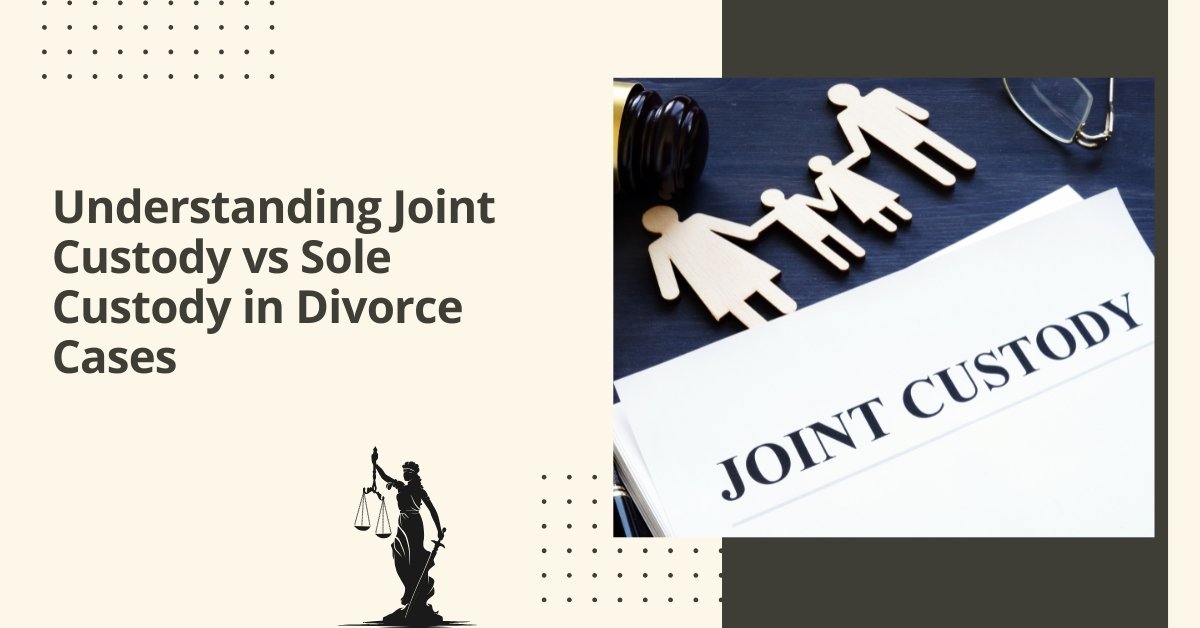Rights of Women in Divorce Proceedings in India: What You Should Know?
Divorce proceedings are often complex and emotionally taxing, especially for women. In India, the legal system provides certain protections and rights to women during divorce, ensuring their well-being and securing their financial and emotional future. These rights address key areas such as maintenance, alimony, child custody, and property division. Understanding these rights is crucial for women who are navigating the divorce process.
This comprehensive guide will discuss the rights women have during divorce proceedings in India, with a focus on maintenance, alimony, and child custody, along with other key legal aspects.
1. Maintenance and Alimony: Ensuring Financial Security
One of the most important rights a woman has during divorce proceedings is the right to seek financial support, which includes maintenance and alimony.
Maintenance During the Divorce
In India, women are entitled to receive maintenance from their husbands during the divorce process. According to Section 24 of the Hindu Marriage Act, 1955, a woman can claim interim maintenance while the divorce proceedings are ongoing. This interim maintenance is designed to support the wife financially until the divorce is finalized. The court considers the financial capacity of the husband, the needs of the wife, and the standard of living when determining the amount of maintenance.
Permanent Maintenance and Alimony After Divorce
Once the divorce is granted, a woman may be entitled to permanent maintenance or alimony. This is especially true if the woman is unable to support herself due to financial incapacity, health issues, or other reasons. The right to alimony is governed by Section 25 of the Hindu Marriage Act, which allows the court to order permanent maintenance after the divorce. The amount of alimony is determined based on various factors, such as:
- The woman’s financial status and income
- The husband’s ability to pay
- The standard of living during the marriage
- The duration of the marriage
- The woman’s age, health, and qualifications
It is important to note that the amount of alimony may be a one-time lump sum or monthly payments, depending on the circumstances and the court’s judgment.
Alimony in Other Personal Laws
While the Hindu Marriage Act provides provisions for maintenance and alimony, women belonging to different religious communities are entitled to similar financial support under their respective personal laws. For example:
- Muslim women: Under the Muslim Women (Protection of Rights on Divorce) Act, 1986, Muslim women are entitled to “Mahr” (a marriage gift) and maintenance for a specified period after divorce.
- Christian women: The Divorce Act, 1869 allows Christian women to claim alimony after divorce.
- Parsi women: Under the Parsi Marriage and Divorce Act, 1936 a woman can seek maintenance during and after divorce.
Thus, regardless of the woman’s religion, she has legal recourse to seek financial support post-divorce.
2. Child Custody: Protecting the Best Interests of the Child
One of the most emotionally charged aspects of divorce proceedings is child custody. Women often face the challenge of securing custody of their children, and the Indian legal system aims to ensure that the best interests of the child are always prioritized.
Custody of Minor Children
Under Section 6 of the Hindu Minority and Guardianship Act, 1956, the mother is usually granted custody of children below the age of 5 years, as it is believed that young children need their mother’s care and attention. For older children, the custody decision is based on the child’s welfare, which includes factors such as the child’s wishes, the ability of each parent to provide for the child’s needs, and the mental and emotional well-being of the child.
In contested divorce cases, the court evaluates various factors to determine custody:
- The child’s emotional bond with each parent
- The ability of each parent to provide a stable and nurturing environment
- The financial and social standing of each parent
- The child’s own preferences (if the child is old enough to express a preference)
- Any history of abuse or neglect
The court may award joint custody, where both parents share responsibilities, or sole custody, where one parent is given primary responsibility for the child’s upbringing. In some cases, the court may also grant visitation rights to the non-custodial parent.
Child Support
Along with custody, the court may also order the non-custodial parent (often the father) to provide child support. This ensures that the child’s financial needs are met, including education, health care, and general well-being. The amount of child support is typically determined by the court, depending on the father’s income, the child’s needs, and other factors.
3. Property Rights: Ensuring Fair Division
In divorce proceedings, the issue of property division can be particularly sensitive. Indian law offers women certain rights when it comes to the division of property, especially in the context of matrimonial property.
Right to Shared Property
Under the Hindu Marriage Act and the Special Marriage Act, a woman has the right to a fair share of the marital property, which includes both movable and immovable assets. However, the law does not automatically entitle the wife to an equal share of the husband’s property unless it was jointly acquired during the marriage.
The court considers various factors, including the contributions made by the wife to the acquisition and upkeep of the property, the duration of the marriage, and whether the property was obtained through joint effort.
Stridhan: Woman’s Property
Stridhan refers to the property that a woman acquires during the course of her marriage, either through gifts, inheritance, or personal savings. In the event of divorce, Stridhan is her exclusive property, and she has the right to claim it. The husband cannot claim any part of her Stridhan, and the woman is entitled to retain ownership and control over it.
Right to Maintenance of Shared Household
The Protection of Women from Domestic Violence Act, 2005 also provides women with the right to reside in the shared household, even if it is owned by the husband or his family. The law ensures that a woman cannot be evicted from the home without her consent, and she can claim the right to maintenance for herself and her children during and after the divorce.
4. Domestic Violence: Legal Safeguards
Women who are victims of domestic violence are also entitled to legal protection during divorce proceedings. The Protection of Women from Domestic Violence Act provides women with the right to live in a shared household and seek protection orders, residence orders, and monetary relief.
In divorce cases where domestic violence is alleged, the court may consider the history of abuse when awarding custody, maintenance, and alimony. Women can also seek a separate maintenance order under this law, in addition to the reliefs provided under the divorce proceedings.
Know Your Rights and Seek Legal Support for a Fair Divorce Process
Divorce is a challenging and often painful experience, and understanding a woman’s rights during this process is essential for securing a fair and just outcome. Women in India have various legal provisions that protect their financial interests, child custody rights, and personal property. These laws ensure that women can rebuild their lives after a divorce and are entitled to financial support, protection from domestic violence, and a fair share of marital property.
For women navigating divorce, consulting with a best divorce lawyer in Kondhwa Budruk, Pune is crucial to understand their specific rights and receive the necessary legal support to safeguard their interests throughout the process.
Most Recent Posts
- All Posts
- Child Custody
- Criminal
- Divorce
- Family
- Law
- Property
Category
Explore Our Services
Empower Your Future with Expert Legal Guidance. Consult with Leading Divorce Lawyers at Adv.Mayur N. Gajbhiye for Professional, Compassionate Representation, Ensuring a Smooth and Informed Legal Journey.








